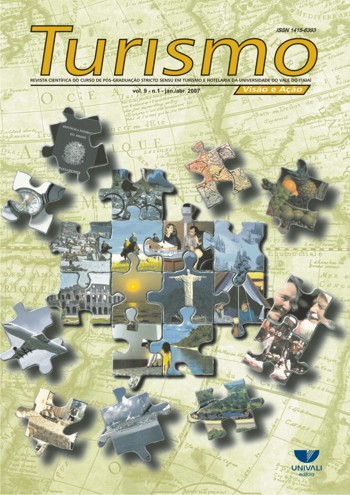






Turismo: Visão e Ação, linked to the Graduate Program in Tourism and Hospitality - Master's and Ph.D., is a scientific journal published in a continuous flow system, with an interdisciplinary and international scope. According to Qualis/CAPES criteria (2017-2020), it is classified as 'A3' in the fields of Administration, Accounting Sciences, and Tourism. Registered with ISSN number 1983-7151, Tourismo: Visão e Ação began its activities in 1998 with printed publications in English and Portuguese. In 2008, it transitioned to an online publication, expanding its reach to a broader audience. It maintains a policy of being an open-access journal without submission or access fees. The abbreviated title for the journal is Tur., Visão e Ação, commonly used in bibliographies, footnotes, references, and bibliographic captions.
Universidade do Vale do Itajaí- Quinta Avenida, 1100, bloco 7, CEP: 88337-300, Balneário Camboriú, SC – Brasil. Tel.: +55 47 3261-1315, e-mail: revistaturismo@univali.br

